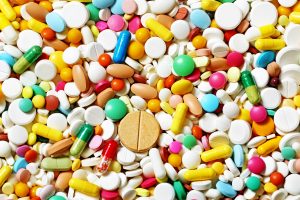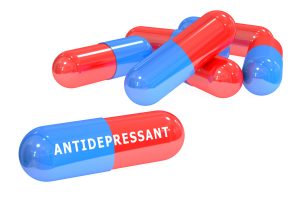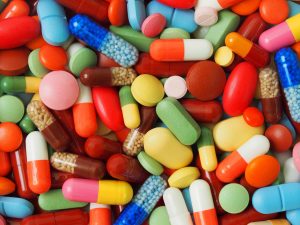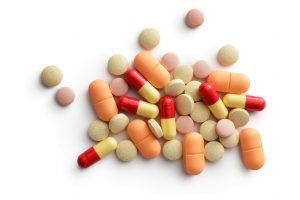Pharmaceutical
Pharmaceutical treatments for bipolar disorder include antidepressants, antipsychotics, mood stabilisers and anticonvulsants, as well as other options often adjunctively administered. There are also sections about treatments for specific symptoms and patients, such as people with bipolar II disorder, and other topics such as polypharmacy, relapse prevention, and placebo effects. Click on the links or the tabs below to access the information, or browse the drop-down menu to the left.
Image: ©Leigh Prather – stock.adobe.com

Mood stabilisers
Mood stabilisers for bipolar disorder include lithium, as well as anticonvulsant medications such as valproate, carbamazepine, and lamotrigine. Click on the links or the tabs below to access the information, or browse the drop-down menu on the left. Image: ©pavel kubarkov - stock.adobe.com

Antidepressants
Antidepressants for bipolar disorder are effective treatments for depressive symptoms, however they may also trigger a manic phase so are often administered in conjunction with other treatments. Click on the links or the tabs below to access the information on each antidepressant, or browse the drop-down menu on the left. Image: alexlmx2016 - stock.adobe.com

Antipsychotics
Antipsychotics are effective treatments for psychotic symptoms, which are sometimes found in people with bipolar disorder, particularly if they are in a manic phase of the disorder. Psychotic symptoms most commonly involve hallucinations and delusions, which can significantly effect a person’s day-to-day functioning, quality of life, and cognition. Antipsychotics are often administered in combination with mood stabilisers or antidepressants. Click on the tabs below to access the information on each antipsychotic, or browse the drop-down menu on the left. Image: ©Andrzej Tokarski - stock.adobe.com

Adjunctive and alternative treatments
Alternative treatments for bipolar disorder may be administered along with, or instead of, standard treatment options such as mood stabilisers. Click on the tabs below to access the information on alternative treatment options for bipolar disorder, or browse the drop-down menu on the left. Image: ©Floortje - stock.adobe.com

Medications for specific symptoms and populations
This category covers the evidence on pharmaceutical treatments for specific symptoms and patient groups with bipolar disorder. These include treatments for people with bipolar II disorder, people with suicidal behaviours, those with substance use problems, and for children and pregnant women. Click on the tabs below to access the information, or browse from the drop-down menu on the left. Image: ©Pio Si - stock.adobe.com

Other pharmaceutical topics
Bipolar disorder medication information includes other topics such as cost of treatments, mode of administration, polypharmacy, switching medications, and placebo response. Click on the links or the tabs below to access the information, or browse the drop-down menu on the left. Image: ©iviewfinder - stock.adobe.com
Green - Topic summary is available.
Orange - Topic summary is being compiled.
Red - Topic summary has no current systematic review available.
